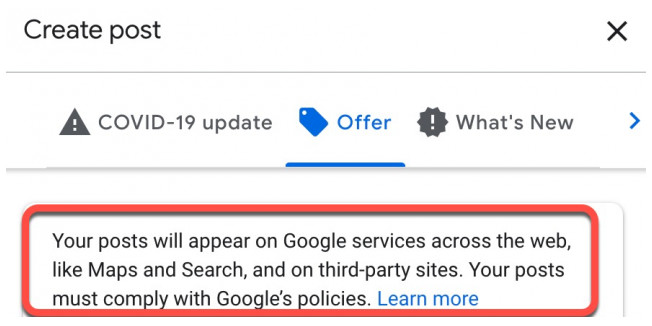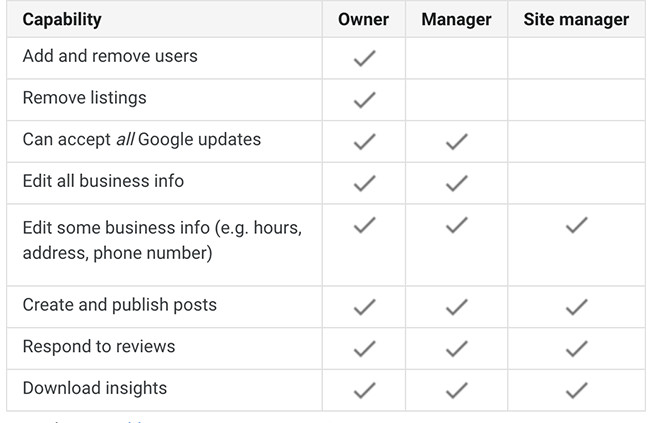Fall has finally arrived and we’re slowly approaching the end of another eventful year. Yet the pace of life remains brisk in local search, where change is the only thing that never changes. Join us for a fast rundown of all the news you need to know from the month that was September 2021.
Mozilla tests Bing as default search engine for 1% of users
Google is the default search engine in Mozilla’s Firefox browser because of a multi-million-dollar deal. But Mozilla is now testing Bing as the default search engine for 1% of its users to observe the effects on its users.
It’s all because Mozilla’s contract with Google expires in 2023, and the former needs to prepare for the possibility that the deal will not be renewed. Users, of course, are always able to manually change their browser’s search engine, though many do not go through the hassle. If Bing does become Firefox’s new default, expect a surge of traffic for Microsoft’s search engine.

If they haven’t already, SEOs should quickly realise that optimising for Bing and other non-Google directories is a potentially lucrative pursuit. Users who opt for Google alternatives like Bing and DuckDuckGo tend to avoid Google products entirely rather than mix and match their discovery platforms. Savvy brands should attempt to reach these completely unique customers after they’ve already optimised as much for Google as they can. After all, Mozilla doesn’t want to be fully reliant on Google and businesses shouldn’t either.
Local businesses that don’t see the value in venturing beyond the Google ecosystem should remember that corroborating information across all tier-1 directories—such as Bing, Apple, and Facebook—has an effect on Google. For instance, if your information on other directories contradicts what Google knows about you, your Google visibility is likely to suffer. Make sure your local information on all directories is accurate, consistent, and up to date not only for those unique users but for your overall performance and visibility online.
Google Posts now appearing on third-party websites
You may notice a new disclaimer when you add Google Posts in Google My Business (GMB):
“Your posts will appear on Google services across the web, like Maps and Search, and on third-party sites.”
Google has not yet specified exactly how Google Posts will appear on third-party sites, or even which third-party sites are included. What is clear, however, is that Google intends to give its feature even more reach. In the past two years, Google has continually been pushing to make posts ubiquitous.

Image: Search Engine Roundtable
In the past three months, Google removed the 10-location limit to allow multi-location businesses to utilise Google Posts. It is now further encouraging uptake by allowing GMB users to create Google Posts without having to first navigate to the GMB dashboard. In fact, you can now create Google Posts directly from Google search via an “Add update” button above the Google Posts section of the local knowledge panel.
Google’s short-term intent is clear: urge businesses to make posts as readily as they write tweets, stimulating the relevancy, timeliness, and—you guessed it—visibility of local business information.
Google adds shipping/return annotations
We’re fast approaching the second holiday season of the pandemic era. With online shopping and deliveries an established necessity, Google has added new shipping and return annotations in both Search and Shopping results. This works across both the free and paid product listings.

Image: Search Engine Roundtable
Sellers can now use shipping annotations like “Free delivery by Fri, Dec 24”, “Get it by Dec 24”, and “Free 5-day delivery” for products that ship for free in five business days or less. To give shoppers more confidence in their purchases, you can also indicate extended holiday return windows with annotations like “Free 90-day returns” or “Free returns until Jan 31”.
With supply chains still struggling, customers are shopping earlier than ever to ensure their holiday purchases arrive on time. Businesses should set up their online infrastructure for the holiday season now and take advantage of these new annotations as soon as possible (maybe as part of a strategy that includes holiday-specific Google Posts!).
Google also reminded businesses that having a dedicated page for seasonal sale events is very good for SEO. It doesn’t even matter if the page hasn’t yet been filled with all sales content or if some items are sold out—Google strongly encourages maintaining seasonal sales pages and keeping them indexable.
Google rolls out ticket-booking functionality
Shopping shifted further online in the past 18 months, and retailers have largely been able to adapt their tactics to continue capturing demand. But it was a different story for travel and leisure businesses, who suffered the effects of the pandemic without being able to rely on ecommerce alternatives. In an attempt to help them bounce back as restrictions lift to varying degrees around the world, Google is now showing ticket-booking information along with the general information when users search for in-person attractions and experiences.
Google drew similarities between this feature and free hotel booking links it launched earlier this year. Users will see basic admissions and other ticketing options within the attraction’s knowledge graph, just the same way booking information appears in hotel knowledge graphs. Further expansion of this feature is planned beyond basic tickets by featuring other experiences such as wine tasting and bike tours near the searched area.
Ticket-booking links can currently be promoted at no cost. Attractions, tours, and activities operators that want to participate can learn more over at Google’s Help Center.
GMB removes Site Manager user role
In a small but important change, Google is removing the Site Manager user role from GMB. Starting on October 24, users with that role will be changed to Manager. All affected businesses should have received an email about this change, notifying them to update their user permissions as needed.

Three roles will remain after this change:
- Primary Owner
- Owner
- Manager
Primary Owners and Owners have the same full permissions with the nominal difference that the Primary Owner is associated with the email Google used to first create the listing. In contrast, Managers cannot create or remove users or listings. Site Managers had fewer permissions still: they could not edit every aspect of the business information nor accept all suggested updates on their listings.
It’s a full-time pursuit to get ahead—and stay ahead—in the world of local search. But you don’t need to dedicate entire teams and budgets to it: we’ll do it for you! Check in with us to learn more.




